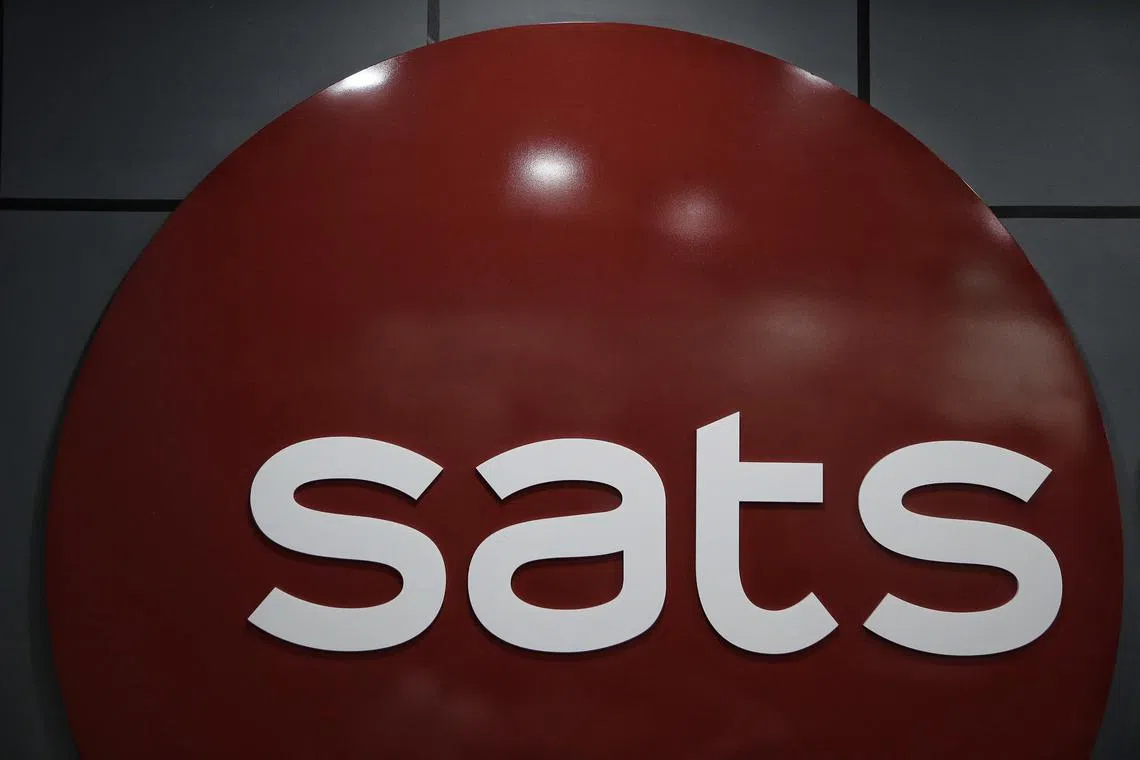Ground handling firm Sats delays roll-out of new cargo handling fee after industry pushback
Sign up now: Get ST's newsletters delivered to your inbox

Sats also made a promise not to raise the fee for at least the next two years.
ST PHOTO: KEVIN LIM
Follow topic:
SINGAPORE - Changi Airport’s largest airfreight ground handler Sats will impose a handling fee on inbound cargo a month later than planned after pushback from freight forwarders.
In response to queries, a Sats spokesman said the import handling fee – which it is levying in Singapore for the first time – was set to take effect on April 15, but will now start a month later on May 15, “subject to further discussion”.
The move comes after talks with the Transport Ministry, the Civil Aviation Authority of Singapore, Changi Airport Group and the Singapore Aircargo Agents Association (SAAA), among others, he added.
The fee structure will remain unchanged: $0.04 for every kilogram of cargo, with a minimum charge of $10 for every shipment. A $10 fee is equivalent to that charged for 250kg of cargo.
Sats processed 2,244,000 tonnes of cargo in financial year 2023, according to its annual report.
Though the fee is common in the airfreight business and is levied in most major airports including Kuala Lumpur, Bangkok and Hong Kong, Sats and its competitor dnata have until now not levied a fee on air cargo.
In a March 15 notice to freight forwarders seen by The Straits Times, Sats said inflation had driven up overall costs, making it impossible not to charge for manpower, technology and service.
The notice said: “Given the challenges the industry was experiencing immediately post-Covid-19, we have held off implementing this fee until now.”
At four cents a kilogram, the fee is the lowest in the region.
In Vietnam, the same handling fee starts from seven cents, and goes up to 29 cents in Hong Kong, the notice added.
Sats also made a promise not to raise the fee for at least the next two years.
But freight forwarders say costs will be significant and may be passed on to consumers.
National Forwarder managing director A. Rajoo said costs would double and set his firm back a projected $15,000 a month.
He said: “I’m fine with the four cents – my main objection is with the minimum charge. We import parts that can be small, so it’s difficult to hit the $10.”
Freight forwarders, he added, do the bulk of the work picking up the cargo, so that is another sore point.
Mr Rajoo said: “We queue up at the terminal, take cargo back to our warehouse, sort it and go through the Customs formalities. I engage men to do this round the clock.”
All Sats does is “leave the cargo at the bay” and break down the wooden pallets used to transport shipments, he added.
A spokesman for Pacific Logistics Group, a key player in the sector, said the fee “could still make a decisive difference”, given the lower demand for freight services, which further drives home the need for cost-effectiveness.
He said: “The introduction of additional costs inevitably impacts our operations, with the ultimate burden resting on the customer.
However, it also underscores the imperative for us to provide value-added services as justification for this increment.”
Though its clients are mostly businesses dealing in industrial products, meaning the minimum fee will be met in most cases, the extra cost might still tot up to a “considerable amount”, he added.
When contacted, the SAAA said Sats will be holding a townhall meeting to discuss the issue.
An industry insider with knowledge of the matter said unhappiness among freight forwarders and cargo agents started brewing immediately after the March 15 notice went out.
A large number of them found it unfair that airlines – the direct customers of cargo terminal operators like Sats – are not bearing some of the cost burdens of the new fee.
He said: “We are not direct customers of Sats.”
There are also those who are concerned that the new import handling fee will lead to higher import costs of raw materials, the insider added, and by extension, higher operating and manufacturing costs for freight recipients as well as higher costs for consumers.
The insider said the issue was raised with the authorities, and that led to the townhall meeting, and to the delay in the roll-out of the import handling fees by a month to May 15.
The consensus among aggrieved freight forwarders is that Sats must justify the new fee with improved service.
In response to queries, a Sats spokesman said in a statement that the revenue from the fee would help it “recruit and retain a dedicated, high-performance team”.
It would also automate parts of the process, including requests for picking up orders and instant notification of delivery sent to consignees or cargo agents by the third quarter of 2024, he added.
When asked about levying a charge on airlines, the spokesman said: “Cost and contract negotiations with airlines are ongoing. (Thus), we are unable to share commercially sensitive information at this point.”
The imposition of the handling fee is being delayed for one month because that will give time for more dialogue and engagement with industry stakeholders, which will help them better understand the fee and prepare for its implementation, he said.
As for the 250kg weight minimum, the spokesman said the fee is benchmarked across the industry and is the lowest minimum fee. It is meant to defray administration costs.
Some industry players are already resigned to the added cost.
A Lee Hoe Transport spokesman said: “Sats is in a monopolistic position to impose such fees. There’s very little that freight forwarders, cargo agents and consignees can do about it.”
Additional reporting by Esther Loi


